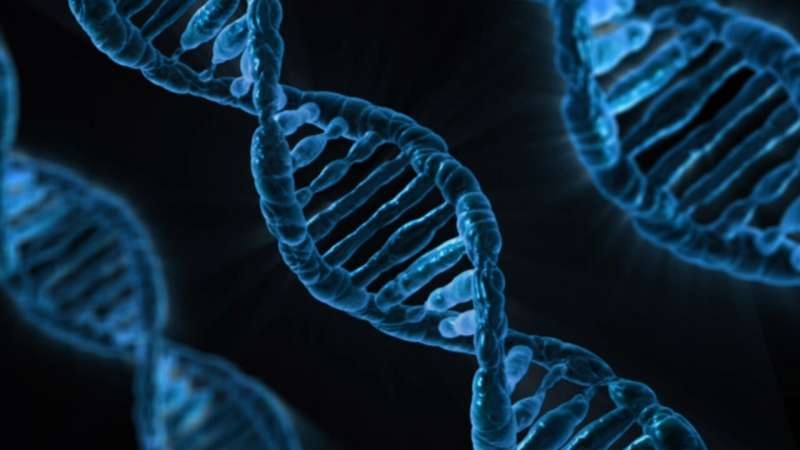This article has been reviewed according to Science X's editorial process and policies. Editors have highlighted the following attributes while ensuring the content's credibility:
fact-checked
trusted source
proofread
Researchers discover a novel genetic disorder associated with neurodevelopmental differences

Researchers from Children's Hospital of Philadelphia (CHOP) and Princeton University have discovered a novel genetic disorder associated with neurodevelopmental differences. The discovery identified the disorder in 21 families from all over the world. The study "Abrogation of MAP4K4 protein function causes congenital anomalies in humans and zebrafish" is published in Science Advances today, April 26.
The as-yet unnamed disorder is the result of a series of rare variants in the MAP4K4 gene, which is involved in many signaling pathways, including the RAS pathway that normal cell growth, and is being investigated as druggable target for multiple disorders.
The researchers had documented several patients with craniofacial and neurodevelopmental issues that indicated a then-unknown genetic cause. They put out an international call for patients who seemed to fit these specific criteria. Ultimately, they were able to identify patients from 36 countries to determine whether there was a genetic variant linking them to their clinical issues.
"We were able to connect with patients from all over the world who had overlapping symptoms, and eventually we were able to pinpoint the overlapping genes that helped us identify the variants causing these issues," said co-senior author Elizabeth Bhoj, MD, Ph.D., an attending physician in the Division of Human Genetics at CHOP.
At CHOP, research scientist Dong Li, Ph.D., identified variants that had not been linked to a particular disorder in families in which multiple patients exhibited the same symptoms. Once those variants of interest had been identified, researchers created a zebrafish model to confirm that these variants were indeed responsible for the symptoms among these patients.
"The zebrafish is an excellent model for testing identified variants for their potential pathogenicity," said co-senior author Rebecca Burdine, Ph.D., a professor of molecular biology at Princeton University. "Given the accessible early development of the zebrafish, we were able to assess MAP4K4 variants quantitatively and rapidly in a living embryo. The approach is a powerful one we plan to continue to use to assess variants of unknown function for potential disease genes."
The researchers showed that decreasing activity of MAP4K4 causes developmental defects in zebrafish, which is what is observed in these patients. Additionally, MAP4K4 activity can restrain signaling in the RAS pathway during embryonic stages, which is why these symptoms were being observed in children. However, overactive RAS activity can lead to cancer, which is why any therapeutic interventions targeting MAP4K4 need to be finely tuned to strike a balance between treating one disorder while also making sure not to increase the risk of cancer.
Since this is a newly discovered genetic variant that causes disease in certain patients, researchers would like to know if it is implicated in more general disease.
"With a new discovery like this, it's possible we may have missed how these variants influence other diseases," Bhoj said.
More information: Victoria Patterson et al, Abrogation of MAP4K4 protein function causes congenital anomalies in humans and zebrafish, Science Advances (2023). DOI: 10.1126/sciadv.ade0631. www.science.org/doi/10.1126/sciadv.ade0631


















